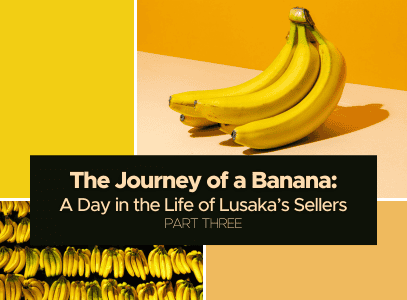Book Review
Centers of Progress: 40 Cities That Changed the World by Chelsea Follett
The City Bites We Need!
Centers of Progress tells the histories of progress in 40 cities from all over the world. In very sizeable (4-5 page) bites, the book explores the story of more famous cities like Athens and its “invention” of democracy to less well-known cities like “Budj Rim” and their advanced water system. I am a very well-seasoned urbanist, and it was my first time reading about this particular city. But you already know that. The book cover has recommendations from Tyler Cowen to Alain Bertaud, and many others. So we know we had to read it at the Charter Cities Institute.
As I was going through my notes to write this blog, I realized that after I read the first city, I wrote down “city bites”. City Bites is also a great way to describe how you can consume this book. You can start reading today and finish by the end of the year, and it would still be relevant. The small bites of cities help. Or maybe you can go on a 40-day challenge and read one city story every day while eating lunch or before going to bed. I call it the 40-day city challenge. With every city, a story of innovation is told, and slowly, you will realize that almost all the progress in the world is urban.
We started the discussion with “What’s your favorite city in the book?”. People think that “your favorite city” is a personal choice; in my book, it’s definitely not. The right answer to this question (especially when it comes to historical context) is always Alexandria. Even if Alexandria is not mentioned in the book, it is always Alexandria. It turned out that I was not the only one who was biased against their hometown. London was also mentioned by a few London-based researchers on our team.
After establishing Alexandria’s dominancy and how it was and will always remain the ultimate center of progress and the best city since antiquity till today. We started going a little deeper, examining if all those examples are actual “centers of progress” or not. Some cities did have a bigger impact on humanity’s progress than others. Not sure where the world would be without Ur invention of writing. I am thinking of the many years of human civilization that would have been lost without Ur invention at this particular time.
The second thing we discussed is a bit of a comparison of another book we read earlier last year. Metropolis. Metropolis went into detail in about 7 examples it discussed. It really tried to capture the essence of each city. We could feel what it was like to live in those cities back then; the slight differences between the somewhat loud streets of Athens and the orderly streets of Alexandria. Now they are both loud, believe me! But the Center of Progress didn’t intend to do so. The whole idea of the book is to introduce us to what all those cities can do and how they contributed to humanity’s progress. Take a bite, you like it, dig deeper.
Cities, of course, are complex beings. Yes, Athens was the birthplace of democracy, but it was also the birthplace of philosophy, one of the earliest and most successful examples of city-states. Focusing on just one aspect of the city’s success made it possible for the audience to focus on this idea and remember the city through it while also capturing the “vibes” of everything else that was happening in the city.
We also discussed the role of religion, how it shaped cities in the past, and the question of whether it will continue to do so in the future. The most obvious answer is yes. While in the West, religious powers seem to be declining, religion still has a pretty strong hold in the East. Even in the West, the Roman Catholic Church remains the biggest landowner in the world. So, to all the church leaders out there, if you want to build a city, reach out to us.
This book is a celebration of cities and all they can accomplish. It’s also a celebration of humans and all they can accomplish when working and living together. A reminder that cities are the main makers of progress and civilizations. From writing to democracy to space innovations, it all happened in cities. It captures why CCI and many others are pure city optimists as the drivers of economic and human progress in general.
We took a final look at the book’s map, and the lack of a “center of progress” in sub-Saharan Africa was clear. On one side, we believe that it’s there it’s because of the lack of research on sub-Saharan African cities, and at CCI, we are trying hard to fill that gap. Second, we strongly believe that the story of sub-Saharan African cities is one that is yet to be told. One that is being shaped right now by the hands of its youth, women, and leaders. It is a story that will be told through its pre-colonial city-states, through all the innovation happening in its current capitals, and the economic progress that will be shaped through its secondary and new cities.
So, finally, who should read this… well I really recommend this to everyone! The language is very approachable and engaging for city experts and noncity experts. Attached is a picture of Nono at the airport enjoying the books. Proving that the book is for absolutely everyone. And yes, this is his “enjoying” face!









